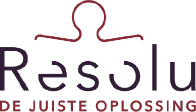When an employee is unable to work due to illness, but also unable to claim continued payment of wages from the employer, an employee or former employee can receive Sickness Benefits.
When is an employee or former employee entitled to sickness benefits?
When an employee has temporary or permanent employment, in most cases the employer will continue to pay wages during illness. In some cases, an employee may still be entitled to sick pay. Even if an employee is not employed, there are situations in which the employee is still eligible for this benefit.
In cases where an employee has an employer
There are some special situations when an employee is entitled to sick pay. The situations are:
- The employee is covered under the no-risk policy;
- The employee becomes ill due to pregnancy or childbirth;
- Employee becomes ill due to organ donation.
In cases where an employee does not have an employer
In the following cases, an employee without an employer is still entitled to sickness benefits:
- When the employee is a temporary employee and becomes ill
- When the employee is an on-call or substitute employee and becomes ill
- The employee has fictitious employment and is sick
- When the employee's contract expires during illness
- When the employee receives unemployment benefits and is sick
- When the employee receives WIA, WAO, Wajong or WAZ benefits and is sick
- When the employee is voluntarily insured for the Sickness Insurance Act
- When an employee continues working after he or she reaches state pension age and is sick.
How long is an employee entitled to sick pay?
An employee is entitled to sickness benefits for a maximum of two years. The employee receives the first benefit no later than 6 weeks after reporting sick. The benefit may stop earlier due to various reasons, such as:
- The employee reports feeling better again
- When the first-year sickness assessment has been conducted and the employee is less than 35% disabled
- The employee has reached the state pension age
- The employee has been detained for more than one month
- The employee dies
How high is a sickness benefit?
The amount of the sickness benefit depends in part on the wages of the previous period when a person became ill. The amount of the benefit is, among other things, tied to the maximum daily wage. The amount of the Sickness Act benefit is 70% of the maximum daily wage.
Why is sick pay substantially lower than wages from work?
If an employee leaves employment sick, the ex-employee may be entitled to Sickness Act benefits. The amount of the Sickness Benefits Act benefit is the same regardless of whether or not the ex-employer is an own-risk carrier (ERD) for this. The difference does lie in the payment; if the ex-employer is self-insured for the Sickness Benefits Act, the ex-employer will usually transfer the amount to the ex-employee. If there is no Own Risk Carrier for the Sickness Benefits Act then the UWV will transfer this on a monthly basis.
Sickness benefit and continued sick pay
Resolu's case managers regularly receive the comment that the amount of sickness benefit is lower than expected. Former employees often think 'but I'm still in my first year of illness so I get paid 100%', however this is unjustified and is due to the fact that a Sickness Benefit is determined differently from the amount of the salary continuation during illness. The benefit is 70% of the daily wage. This is the average wage the employee earned with the last employer before the employee became ill. The daily wage includes vacation pay. So there will be no vacation pay in May or remaining vacation pay when the Sickness Benefit stops.
Whitepapers & Webinars
You undoubtedly know; you are up to 12 years of financial ...

The Sickness Benefits Act (ZW) is a Dutch law that regulates that sick employees, in cases where ...
The Sickness Benefits Act (ZW) is a Dutch law that regulates that sick employees, in cases where ...




